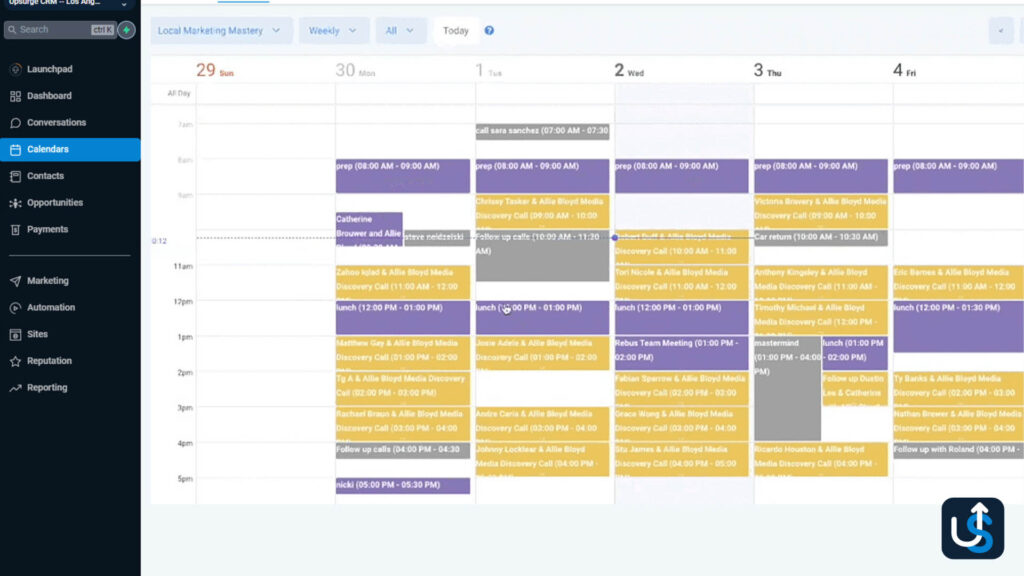
Missed appointments or deadlines can lead to dissatisfied clients, financial loss, and even legal repercussions. For law firms, managing schedules and deadlines efficiently can be the difference between a thriving practice and one that struggles to maintain its reputation.
This is where Customer Relationship Management (CRM) systems come into play. Originally designed for sales and customer service, CRMs are now indispensable tools for law firms, offering robust features for scheduling, deadline tracking, customer management, and workflow automation. In this blog, we’ll explore how a CRM can revolutionize your law firm’s time management practices and ensure nothing slips through the cracks.

Missing an appointment or deadline sends the wrong message to clients—it shows a lack of organization and reliability. This can severely erode trust and confidence, leading clients to question your firm’s ability to handle their cases effectively.
In some cases, clients may decide to terminate their relationship with your firm, resulting in lost business and potential damage to your reputation. For high-stakes legal matters, such as litigation or corporate deals, the consequences of a missed deadline can lead to financial losses or even legal liabilities for your clients.

Missed schedules disrupt workflows, creating a domino effect of inefficiencies. Lawyers and staff often scramble to reschedule appointments, recover from missed deadlines, or address client grievances, which diverts attention from other critical tasks.
These inefficiencies result in wasted billable hours and increased administrative overhead. Furthermore, repeated scheduling errors can demoralize your team, leading to burnout and reduced productivity across the firm.
Failing to meet court deadlines can have catastrophic legal consequences. For instance, a missed filing deadline could result in case dismissal, monetary sanctions, or even contempt of court. In extreme cases, such failures could lead to malpractice claims, exposing your firm to financial penalties and reputational harm.
Beyond the immediate consequences, such oversights can damage your standing with courts and opposing counsel, affecting your firm’s long-term credibility.
A consistent record of missed deadlines or appointments can tarnish your firm’s image, making it harder to attract and retain clients. In today’s digital age, negative reviews or client complaints on social media and review platforms can spread quickly, amplifying the damage.
Reputation is a cornerstone of success in the legal industry, and operational shortcomings can create lasting harm that takes years to repair. Moreover, word-of-mouth referrals—a critical source of new business for many firms—can dwindle if your firm is perceived as unreliable.

A CRM is a centralized system designed to manage client interactions, schedules, and case details efficiently. For law firms, it acts as the backbone of scheduling and workflow management.
Appointment Scheduling and Reminders: Automates the process of booking and reminding clients.
Deadline Tracking: Keeps tabs on critical dates with alerts and notifications.
Integrated Communication Tools: Streamlines follow-ups with clients.
Secure Document Storage: Ensures that case files and deadlines are accessible and protected.
Unlike generic CRM tools, law-specific CRMs can help law firms with case management and are designed to handle the unique requirements of legal professionals.
Managing appointments effectively is crucial for any law firm. A CRM system simplifies and automates this process, ensuring that your team is always on the same page and that clients receive the attention they deserve. Here’s how it works:

A CRM consolidates all schedules into a single view. It integrates with multiple calendars, including individual attorney schedules, team calendars, and court appointments. This centralized system offers real-time updates, preventing double bookings and scheduling conflicts. By having all schedules in one place, your firm can ensure seamless coordination and efficient time management.
CRM systems send automated reminders to clients and staff via email, SMS, or app notifications. These reminders significantly reduce no-shows and ensure everyone is prepared for meetings. Clients are notified well in advance, and staff members stay on top of their commitments, creating a smoother experience for everyone involved.
Many CRMs offer client-facing scheduling portals. Clients can book consultations online through a simple, user-friendly interface. The system automatically checks availability and confirms appointments, reducing the need for back-and-forth communication. This feature not only saves time but also improves client satisfaction by offering convenience.

By analyzing appointment trends, CRMs provide insights into peak times and potential bottlenecks. These reports help your firm allocate resources effectively, identify areas for improvement, and optimize scheduling practices for better efficiency.
Deadlines are the lifeblood of legal work, and missing them can have dire consequences. A CRM helps your firm stay ahead by streamlining the way deadlines are tracked and managed. Here’s how a CRM keeps your team on track:
CRMs allow for the creation of customizable timelines for each case. These timelines can sync with case management software, ensuring that court-mandated deadlines and other key dates are never overlooked. By keeping all deadlines in one system, your team can easily monitor progress and prepare in advance.

CRMs send alerts for upcoming deadlines and overdue tasks. These notifications are sent to the appropriate team members, ensuring that everyone is aware of their responsibilities. With automated alerts, your firm can avoid last-minute rushes and reduce the risk of missed deadlines.
With a CRM, you can assign tasks and deadlines to specific team members. The system tracks progress and provides updates, ensuring accountability and smooth workflows. This feature is especially helpful for larger teams, where delegation and coordination are key to success.
Many CRMs include templates for legal documents, reducing the time spent drafting and ensuring accuracy. By automating document creation, your team can focus on higher-value tasks while meeting deadlines with ease.
When selecting a CRM for your law firm, look for features that directly address your firm’s specific needs. Some critical features include:

A successful CRM implementation starts with proper training. Conduct comprehensive training sessions to ensure all team members understand the CRM’s features and their practical applications. Provide ongoing support and create user manuals or cheat sheets for quick reference.
Transferring data from your existing systems into the CRM is a critical step. Work with your IT team or CRM provider to ensure a secure and accurate migration of schedules, client information, and historical case data. It’s essential to back up all data beforehand to avoid any loss during the process.
Every law firm operates differently, so customizing the CRM to match your firm’s unique needs is crucial. Tailor workflows set up automated notifications, and configure user roles to ensure the system supports your firm’s goals and maximizes efficiency.
To keep your CRM running smoothly, schedule regular audits to monitor its performance and identify areas for improvement. Ensure software updates are installed promptly to take advantage of new features and security enhancements. Collect user feedback to make adjustments that improve usability and effectiveness.
Managing appointments and deadlines doesn’t have to be a source of stress for law firms. A CRM offers a streamlined, efficient way to handle scheduling and ensure deadlines are always met. By investing in the right CRM, your firm can improve client satisfaction, boost operational efficiency, and maintain compliance.
Struggling to keep up with appointments and deadlines? Upsurge CRM is designed specifically for law firms to streamline scheduling, enhance efficiency, and ensure compliance. Explore Upsurge CRM for Law Firms today and take control of your firm’s time management!
